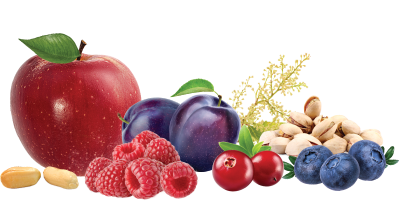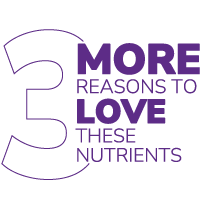Resveratrol for a Youthful Life
Resveratrol is a protective compound found in plants, formed in response to stressful conditions the plant encounters during its growth cycle. Amazingly, when taken as a dietary supplement, this powerful polyphenol can also act as a protective mechanism in human cells. Resveratrol has been studied for its potential cardiovascular, cellular health, longevity, and brain function benefits. Anyone interested in healthy aging should include this potent antioxidant compound in their daily healthy regimen.
The resveratrol I recommend comes from Japanese knotweed (Polygonum cuspidatum) which is a highly valued herb traditionally used in tea preparations. Although resveratrol is commonly associated with grapes and red wine, Polygonum cuspidatum delivers a far more concentrated source of this beneficial botanical compound.
The Longevity Enzyme
Resveratrol activates sirtuin 1 (SIRT1), or the longevity enzyme. SIRT1 extends life by preserving telomeres—the protective ends of chromosomes that can be damaged by oxidative stress, inflammation, and aging. Telomeres are often compared to the protective caps at the ends of shoelaces that prevent them from fraying and unraveling. Each time a cell divides, telomeres get shorter until the cell can no longer survive, so safeguarding them is key to longevity and youthfulness.
Resveratrol also boosts production of glutathione (a powerful antioxidant), which helps the skin, brain, and heart defy their biological age. A scientific study found resveratrol extended lifespan by 59 percent, which, in my opinion, puts it solidly into “fountain of youth” territory. And I think resveratrol combined with a clinically studied, bioavailable curcumin, plus the strength of quercetin, makes an unbeatable team.
Additionally, when these nutrients are combined, their absorption is enhanced—sometimes dramatically. Researchers found that pairing resveratrol with quercetin increased absorbability by 310 percent, and with curcumin by 300 percent.
Where Does Resveratrol Come From?
Resveratrol is a protective compound in plants formed in response to stressful conditions. It is found in grapes, apples, blueberries, and many other foods and plants.


Preserves Youthful Appearance
Resveratrol counters oxidative stress from sunlight, wind, and other causes of skin aging. It also regulates tyrosinase, an enzyme associated with dark age spots, and promotes the activity of other enzymes that protect against UV damage. Plus, resveratrol strengthens collagen synthesis to reduce wrinkles and preserves elastin, a protein that maintains skin elasticity and a youthful appearance.
Curcumin, a polyphenol from turmeric, inhibits inflammation, protects the skin from the effects of sunlight and UV damage, and slows aging of the skin. If you’ve spent a lot of time outdoors, or simply want to stop inflammatory cytokines from causing adult acne or making your skin appear older, curcumin is an excellent partner to resveratrol.
Another powerful polyphenol, quercetin (found in certain fruits, vegetables, and botanicals) stops skin inflammation and photosensitivity by blocking the release of cytokines from mast cells, which are responsible for triggering allergy-like reactions. Scientific research has found quercetin is more effective than cromolyn, a prescription drug often recommended for the same purpose. The authors of the study noted the challenge is making sure that quercetin is well-absorbed, which is why I recommend quercetin combined with other absorption-enhancing nutrients, like resveratrol and curcumin, plus the added assistance of gamma cyclodextrin.
Keeps Weight in Check
Gaining weight as you age is not inevitable. With the proper diet and exercise regimen, plus the right supplemental nutrients, you can keep your metabolism running at a youthful clip and keep off unwanted pounds.
For example, intermittent fasting diets jump-start SIRT1 activity, which improves metabolism and can help with weight loss.
And resveratrol can provide an even bigger boost. Scientific and clinical studies have found resveratrol’s activation of SIRT1 mimics caloric restriction—but without the restriction. Resveratrol reduces inflammation in adipocytes (fat cells), which would otherwise lead to even more fat accumulation. It also boosts energy expenditure, recharges metabolism and helps prevent weight gain, and, in laboratory studies, it overcomes the effects of a high-calorie diet.
Curcumin can also help you stay in shape because it improves the concentration of a naturally occurring hormone in the body called adiponectin. Adiponectin fights inflammation, helps regulate blood sugar, protects the heart, and—perhaps surprisingly, considering it is secreted by adipose tissue—keeps the body lean.
Quercetin keeps unwanted weight gain in check as well. Scientific research shows that, like resveratrol, quercetin reduces inflammatory markers in fat cells that would otherwise lead to weight gain, and regulates blood sugar and insulin response, too.


Heart and Cardiovascular System Clinical studies report that resveratrol suppressed inflammatory C-reactive protein, improved systolic blood pressure in participants with hypertension, blood vessel function in individuals with type 2 diabetes, decreased triglycerides, and reduced episodes of angina.
Curcumin preserves vascular muscle tissue, stops inflammation and oxidative damage in blood vessels, and promotes nitric oxide release, which can improve blood pressure. Clinical studies show that quercetin boosts levels of nitric oxide, lowers blood pressure, reduces triglycerides and LDL cholesterol levels, and improves heart strength.
Stops Cancer and Fights Tumors Resveratrol, curcumin, and quercetin all show strong cancer-fighting activity-inhibiting its formation, growth, and progression. They kill cancer cells by interrupting their life cycle, prevent tumors from accessing nutrients, stop the return of cancer, and help overcome chemo resistant tumor cells.
Repairs the Liver A 12-week clinical trial found that daily resveratrol supplementation improved outcomes in cases of non-alcoholic fatty liver disease, and curcumin shows great promise for that condition as well.
Protects Your Mind and Memories
Aging gracefully is about staying sharp and maintaining a healthy state of mind.
Numerous scientific and lab studies have discovered that resveratrol improves cerebral blood flow, reduces inflammation in the brain, and protects, preserves, and repairs brain cells. Clinical research shows better synapse connections and neural plasticity as a result.
A six-month clinical study reported resveratrol combined with quercetin improved the connectivity of the hippocampus, a region of the brain associated with memory and word recall.
Like resveratrol, curcumin inhibits inflammation, and boosts levels of a protein called brain-derived neurotrophic factor (BDNF) which is essential for cognitive health and learning. BDNF also triggers the creation of new brain cells. An analysis of controlled, randomized clinical trials found that curcumin consistently and significantly increased levels of BDNF, even after short periods of supplementation.
Quercetin may also protect against memory loss and the development of Alzheimer’s disease. Scientific studies show it inhibits the formation of fibrils and beta-amyloid plaques that block signals in the brain and reduces inflammatory cascades that damage neurons and diminish clear thinking.
Defy Your Age with These Amazing Nutrients
The examples I’ve given here are just a few of the ways resveratrol, curcumin, and quercetin can help you defy your age and stay youthful in mind and body. These botanicals also protect cells and stop tumors, strengthen your heart and cardiovascular system, improve your immune response, and perform a host of other beneficial roles. Each one is powerful on its own, but together they create a synergistic effect that can truly strengthen your health. I’m confident that by adding them to your daily regimen, they will enrich your well-being for years to come.
